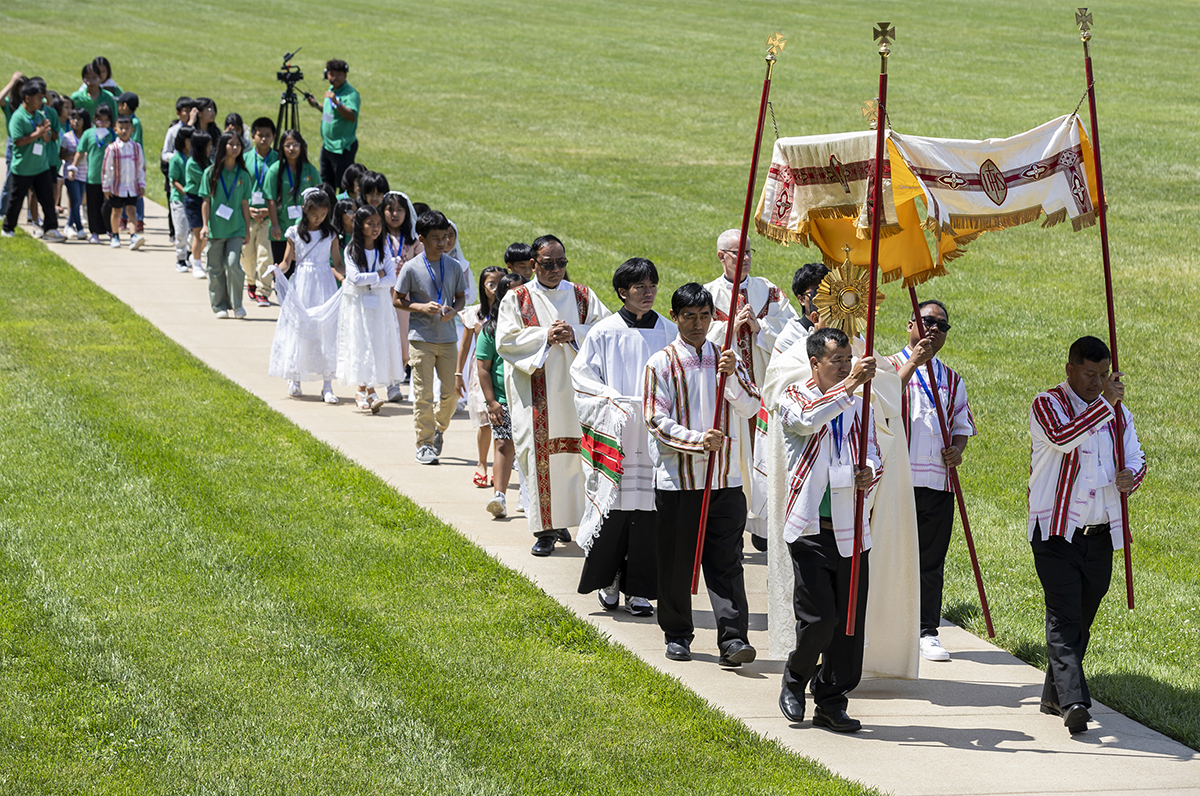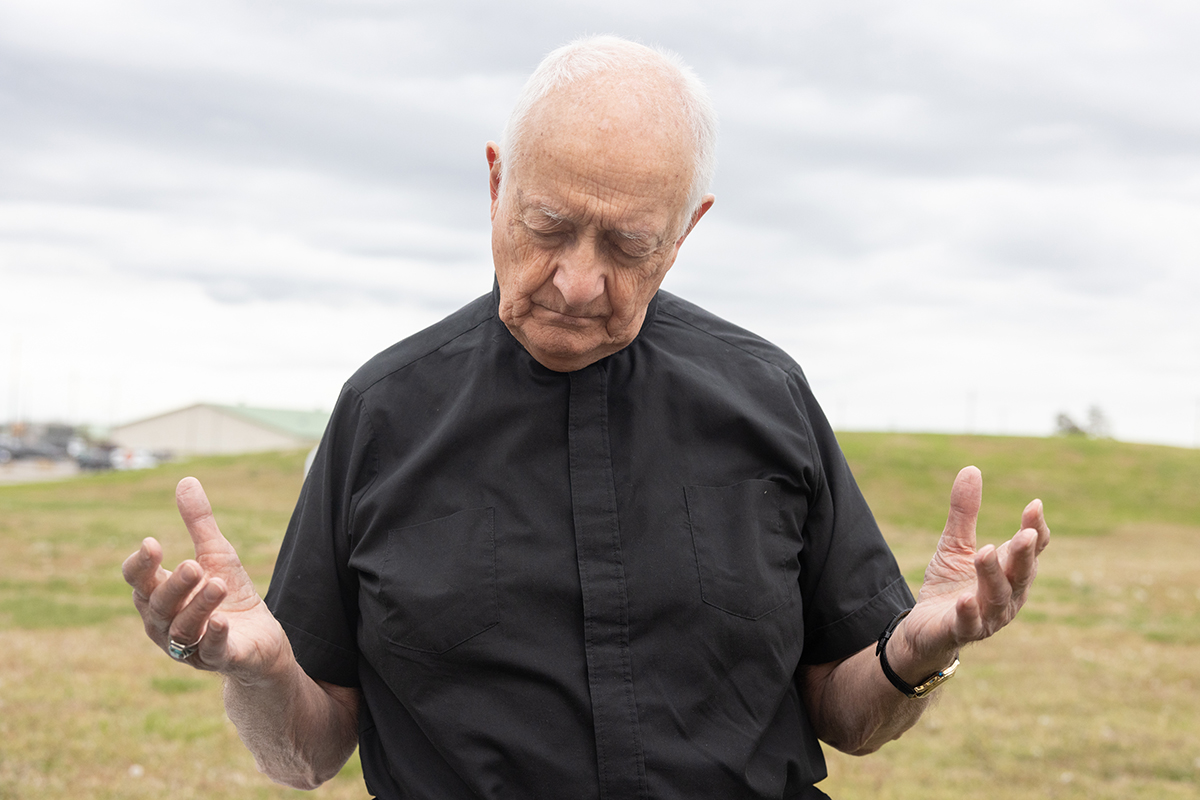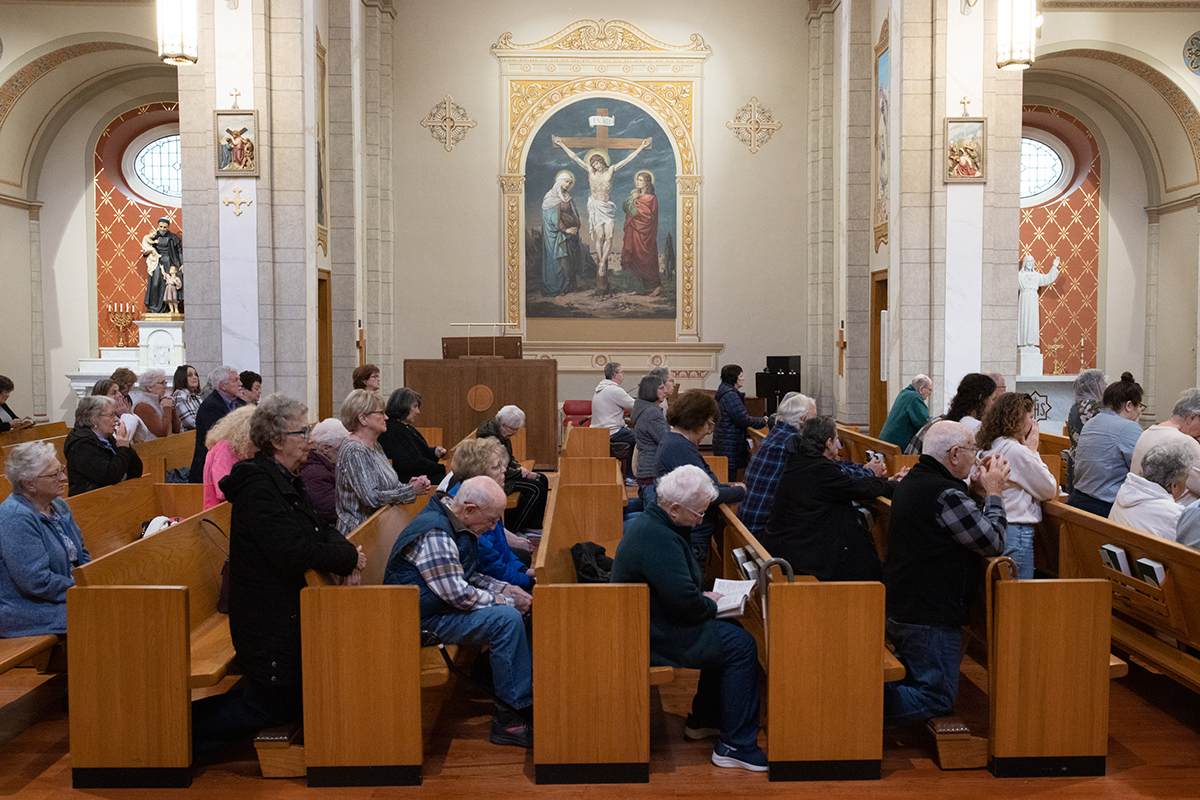Catechism of the Catholic Church offers nuggets of wisdom on the topic of thanksgiving
Understanding thanksgiving within the context of our faith can serve as a solid foundation when we recount our earthly blessings
Thanksgiving is for sharing our gratitude, enjoying family and reflecting on our blessings. Because of the health pandemic, this year’s Thanksgiving may look a little different. While we are encouraged to forego gatherings with extended family, there are other ways in which we may express our gratitude on this holiday.
Understanding thanksgiving within the context of our faith can serve as a solid foundation when we recount our earthly blessings. In the Catechism of the Catholic Church, we find numerous contexts in which we give praise and thanks to God. Here are several examples:
Eucharist
The Eucharist is an action of thanksgiving to God. The Greek word “eucharistein” means “to give thanks” or “be thankful” or “grateful.” When we celebrate the Eucharist, we recognize it as a sacrifice of thanksgiving and praise to God the Father. The Church expresses her gratitude to God for all He has accomplished through creation, redemption and sanctification.
(See Catechism of the Catholic Church, 1328, 1358, 1360)
“Hallowed be Thy name.”
When we pray the Our Father, we say the words, “hallowed be Thy name.” It’s an expression in which we recognize God as holy. But through these words, we are giving praise and thanksgiving, too. Asking the Father that His name be made holy draws us into His plan of loving kindness for the fullness of time
(See Catechism of the Catholic Church, 2807)
Holy Spirit
In the Liturgy of the Word, the Holy Spirit “recalls” to the assembly all that Christ has done for us. Through this, the Holy Spirit prepares the Church to encounter the Lord in the eucharistic sacrifice, making a remembrance of the marvelous works of God. The Holy Spirit, who awakens the Church’s memory, inspires us to give thanksgiving and praise.
(See Catechism of the Catholic Church, 1103)
Jesus’ example
The Gospel often shows Jesus in prayer. He has been depicted as praying in solitude before important moments in His mission or the work of His Apostles. Jesus’ life becomes a prayer because He is in frequent communication with His Father. In a prayer before the raising of Lazarus, Jesus offers words of thanksgiving to His Father: “Father I thank you for having heard me.” Through this, He reveals to us how to offer our petitions. The giver (God) is treasured more than the gift itself.
(See Catechism of the Catholic Church, 2603, 2604)
Life as thanksgiving
The Commandments, properly so-called, come in the second place: they express the implications of belonging to God by establishing the covenant. Moral existence is a response to the Lord’s loving initiative. It is the acknowledgment and homage given to God and a worship of thanksgiving. It is cooperation with the plan God pursues in history.
(See Catechism of the Catholic Church, 2062)
The necessity of giving thanks
Without the Lord’s plan of salvation, including the forgiveness of sins, there would be no hope of eternal life in His Kingdom after death. We must give thanks to Jesus for His gift to the Church — the mission and power to forgive sins through the apostles’ ministry and their successors.
(See Catechism of the Catholic Church, 224, 795, 983, 1167, 1333, 2781)
Giving thanks on any occasion
Prayers of thanksgiving and praise are one of the essential forms of Christian prayer. Every prayer can be an opportunity to offer thanks to God. In St. Paul’s letters, he often began and ended by giving thanks to the Lord. “Give thanks in all circumstances; for this is the will of God in Christ Jesus for you” (1 Thessalonians 5:18).
(See Catechism of the Catholic Church, 2638)
Thanksgiving is for sharing our gratitude, enjoying family and reflecting on our blessings. Because of the health pandemic, this year’s Thanksgiving may look a little different. While we are encouraged … Catechism of the Catholic Church offers nuggets of wisdom on the topic of thanksgiving
Subscribe to Read All St. Louis Review Stories
All readers receive 5 stories to read free per month. After that, readers will need to be logged in.
If you are currently receive the St. Louis Review at your home or office, please send your name and address (and subscriber id if you know it) to subscriptions@stlouisreview.com to get your login information.
If you are not currently a subscriber to the St. Louis Review, please contact subscriptions@stlouisreview.com for information on how to subscribe.






